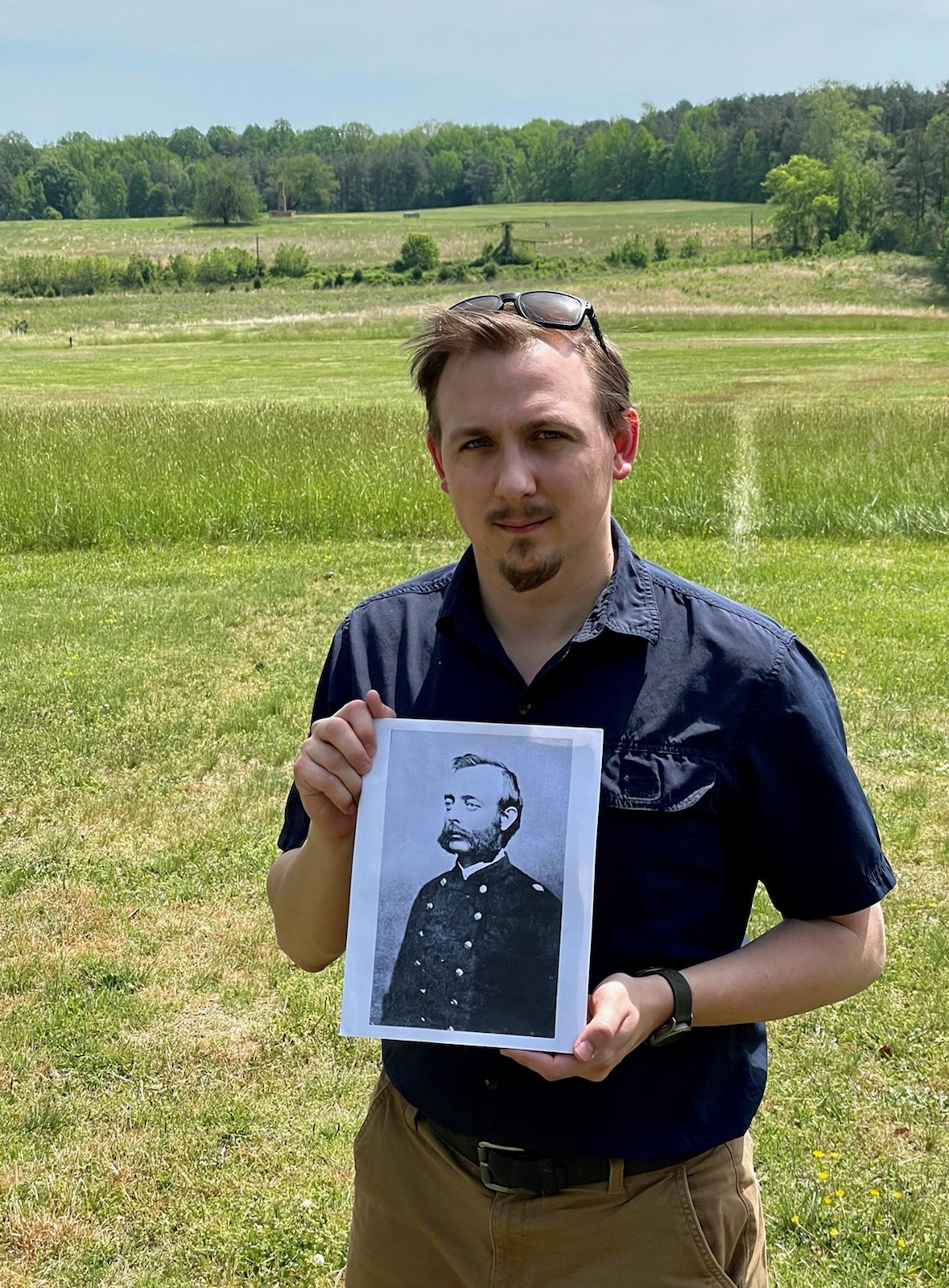Kyle Nappi’s search for the history of his ancestors led straight to Mount Vernon.
In particular, it led to his great-great-great uncle, William Welsh of Mount Vernon.
Welsh, a schoolteacher before the Civil War, was a white Union officer who commanded Black troops, Nappi writes in the Journal of the Civil War Era.
”For Black men during the Civil War, military service in the U.S. Colored Troops (USCT) offered a hopeful pathway toward citizenship and equality,” Nappi writes. “Freedom would be theirs by the sword. However, to temper prejudicial Northern attitudes concerning the arming of Black men, the U.S. War Department’s Bureau of Colored Troops instructed white officers to lead these segregated units.”
In March 1864, Welsh assumed command of the 19th USCT’s Company K.
Most of the soldiers were “freed slaves from Maryland’s Chesapeake Bay and Atlantic coastal regions,” Nappi writes.
The troops were stationed outside Petersburg, Va., which was under siege by Northern troops.
Federal troops attempted to break the Confederate defenses by exploding 8,000 pounds of gunpowder in a makeshfit mine beneath the fortifications. It was a disaster.
“Due to incompetent and disorderly planning, the first echelons of Federal soldiers rushed into the gaping hole – some 200 feet long, 50 feet wide and 30 feet deep – and were met by merciless Confederate gunfire,” Nappi writes. “ The USCT men, once the vanguard who drilled for weeks to spearhead the assault, now assumed the herculean task of salvaging the ever-worsening calamity.”
Welsh was in more than 50 battles and engagement and ended the war a brevet brigadier general, Nappi writes.
Nappi is a native of Delaware County and an Ohio State University graduate who is now a national security specialist in Washington. He accomplished much of his research during the slow, quiet days of the COVID-19 pandemic, he told the Mount Vernon News.
One of the topics Nappi explored was Ohio soldiers known as Hundred Days Men. They enlisted in the spring of 1864 to help bring the war to a close. Ohio recruited 35,982 men for the short enlistments, including Nappi’s great-great-great-great grandfather, John LeVoy Higbie, a Knox County farmer and father of four.
“One of the effects of COVID was that the abundance of time everyone had to themselves,” he said. “For me, it was chatting with family and being able to delve into the ancestry-genealogy world and discover all these unique things.”
One of the relatives he met during the research was Amy Outlaw, a fourth cousin living near Atlanta, who conducted extensive research about the Welsh family and its ties to Knox County.




.webp)
.webp)
